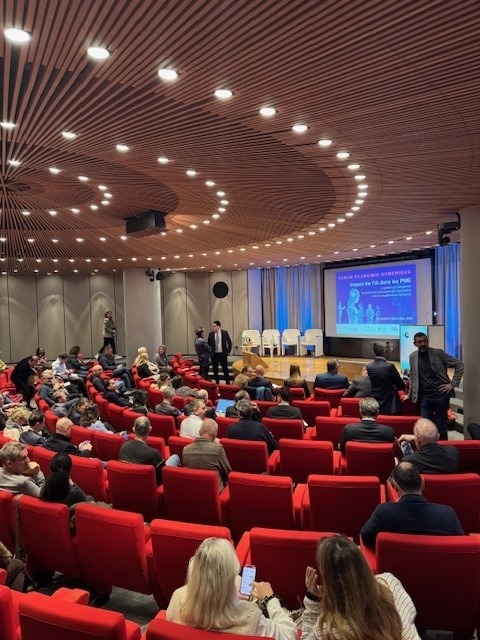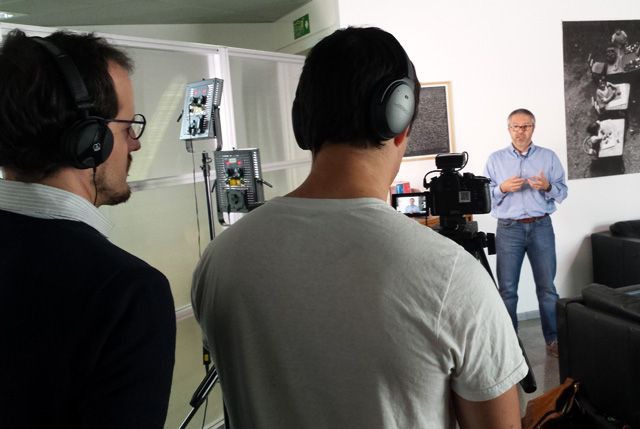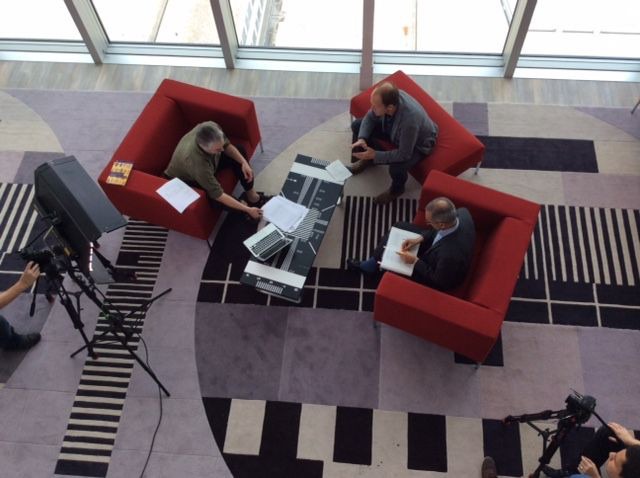
In 2012 Massive Open Online Courses (MOOCs) were in the news as the next big thing that would disrupt higher education. Large numbers of people were signing up for MOOCs and universities were taking note and wondering how to use MOOCs in their education offering.
 University of Geneva was one of these universities. After internal discussions and contact with Coursera (an online hosting platform specializing in MOOCs) the University of Geneva launched its first MOOC in 2013 – International Organizations Management (in English) – that was a success with 44,000 participants registering for the course.
University of Geneva was one of these universities. After internal discussions and contact with Coursera (an online hosting platform specializing in MOOCs) the University of Geneva launched its first MOOC in 2013 – International Organizations Management (in English) – that was a success with 44,000 participants registering for the course.
Prior to this, UNIGE did have e-learning as part of its Nouvelles Technologies de l'Information et de la communication programme but now there is also a MOOC department headed by Christelle Bozelle, that manages the production process of the MOOC courses. Every Faculty apart from the psychology and sciences of education has a MOOC. However, this was not a UNIGE strategy but a result of different call for projects launched by the Rectorate.
Initially, the UNIGE adopted a ‘let’s try this and see where it goes’ approach to MOOCs and despite the success of the initial MOOC there was a muted response from both the UNIGE Faculties in part due to the extra work involved in producing a MOOC and the uncertainty over the impact and future of the MOOC in higher education, and from students who preferred the student interaction and classroom face-time with teachers - it’s harder to learn alone. But now the MOOC is accepted as part of the education process. The MOOC programme contributes in this way:
The benefits stated above help rationalize the xMOOC, cMOOC discussion that arose as the MOOC emerged into public consciousness. The xMOOC is modelled on the classroom approach, it’s bound into the student curriculum, and UNIGE uses this approach in its course offering to students. As Christelle Bozelle observes, ‘there are two types of learners : those who want a certification that will help their employment opportunities so they will complete the 60 minute plus MOOC courses to get the knowledge and do the necessary assignments.’
 Some other learners will take a different approach. Theirs is more a curiosity and ‘dinner-table conversation’ approach. Student registrations and international diversity are higher and teachers have to evolve a different method of delivering their courses. It is still an xMOOC approach at its core but with a cMOOC twist - the benefits from collaboration and the innovation in teaching methods and preparation.
Some other learners will take a different approach. Theirs is more a curiosity and ‘dinner-table conversation’ approach. Student registrations and international diversity are higher and teachers have to evolve a different method of delivering their courses. It is still an xMOOC approach at its core but with a cMOOC twist - the benefits from collaboration and the innovation in teaching methods and preparation.
At the UNIGE the production of a MOOC is outsourced to an external production company and Swiss TV. All MOOCs are produced according to the same process; the MOOCs are scripted with a course of action or narrative that link all MOOCs in the course together and teachers undergo training, including story telling techniques and how to present in front of two cameras. Content is important and evaluation is critical and assessed via quizzes, multiple choice and peer evaluation then there is the management of registration, deadlines and milestones. Online forums are used for feedback and Q&A. It’s a time consuming process. All this is having a knock-on effect into the teaching methods of higher education options; with more and varied course now offered online, a trend towards shorter course and a diversification in the types of certifications that can be attained by students and probably in the future, these might include credits for MOOC courses that will count towards a recognized academic qualification and the possibility to produce a set of MOOCs that any university could use but exams are held at each university.
The collaborative approach by UNIGE is manifested by:
 A MOOC capstone project with the University of Leiden called, "Challenges in Global Affairs". The capstone is a final project that follows the successful completion of three separate MOOC courses, including the International Organizations Management MOOC from the University of Geneva.
A MOOC capstone project with the University of Leiden called, "Challenges in Global Affairs". The capstone is a final project that follows the successful completion of three separate MOOC courses, including the International Organizations Management MOOC from the University of Geneva.The expectation for MOOCs when they arrived on the scene was that they would disrupt higher education. Disruption may yet happen and the xMOOC, cMOOC approach is ongoing but MOOCs, based on the experience of the University of Geneva, have pushed their way out of the trough of disillusionment and onto the slope of enlightenment to spark new ways to; deliver higher education, evolve business models, reach new audiences, attract new students and engage in new and collaborative partnerships.
For more information : http://moocs.unige.ch/accueil/
Photo credit: www.unige.ch; droit des enfants par Urs Richle; JJ Fall